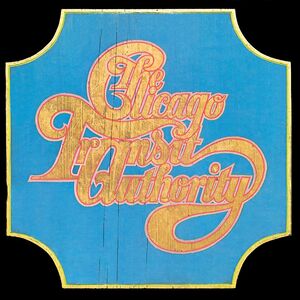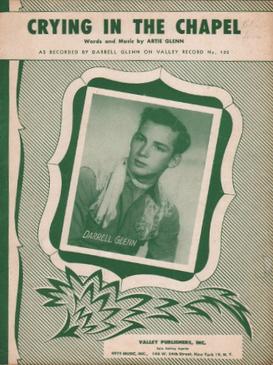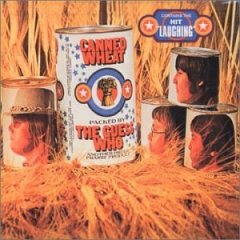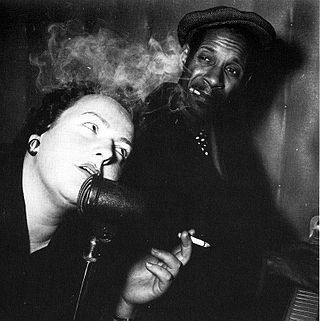The topic of this article may not meet Wikipedia's notability guidelines for companies and organizations .(August 2024) |
BASF, the record label existed during the 1970s. The label issued thousands of recordings by artists of many genres.
The topic of this article may not meet Wikipedia's notability guidelines for companies and organizations .(August 2024) |
BASF, the record label existed during the 1970s. The label issued thousands of recordings by artists of many genres.
The BASF record label was the vinyl record division of the BASF chemical group. [1]
During the 1970s, the label had ventured into the quadraphonic area. The label's quadraphonic releases included Demonstration in Quadro, Fantastic Quadro by rosse Orchester Spielen Welthits and Musik Total Erleben. [2]
Acciording to the 20 February 1971 issue of Billboard , BASF were to set up their record label early in the following year. The company was currently looking for a pressing and distribution deal to market record discs and tapes under the BASF banner.
The first of March was the date given for the company's move into the record business with the BASF label making its debut in Germany. Werner Cyprys a German producer had for some time already been active in building up a ready catalogue for the label's introduction. [3] The label had also taken on board, Sigrid Volkmann, a German producer from Munich. Some of the artists which would be releasing their work through BASF were, Daniela, Gisela Marell, Hans Juergen Baeumler (ice star), John O'Brian Docker (guitarist ), Arno Flor (big band leader), Thomas Fritsch (actor), Peter Garden (tv star), Rolf Kuehn (jazz star), and Dieter Thomas. [4]
They had already sealed a distribution deal with MPS Records. The MPS catalogue included work by includes material by Ella Fitzgerald, Oscar Peterson and Errol Garner. The deal also included the budget cassette company Polyband. [5]
It was reported by Paul Seigel in the 25 September 1971 issue of Record World that 2,000,000 German marks had been paid for songstress Manuela of Telefunken-Decca to come to BASF. This had apparently caused concern to other record company executives about holding on to their artists. [6] It was also reported that Cindy and Bert were set to do good with their BASF single, "Ich fand eine Hand". [7]
The 29 April 1972 issue of Billboard (page 22) featured ads from the Shorewood Packaging Corporation welcoming BASF Records to America and the PRC Recording Company welcoming BASF Records to the American scene. [8] The following page had some of the label's artists who had their work released on the label. They were Don "Sugarcane" Harris with Fiddler On The Rock, Earl "Fatha" Hines with Fatha & His Flock On Tour, Jim Hall with It's Nice to Be With You , Dave Pike Set with Infa Red, Ella Fitzgerald with Watch What Happens, Oscar Peterson with Motions & Emotions and Hello Herbie, The Kenny Clarke Big Band with All Smiles, Milt Buckner Trio with Play Chords, and Don Cherry with Eternal Rhythm .
The contact for the United States was BASF Systems, Inc., Crosby Drive, Bedford, Mass. 01730. And for Canada it was BASF Canada Ltd., P.O. Box 430, Station St. Laurent, Montreal 379, Quebec. [9]
The 12 May 1973 issue of Billboard showed three BASF releases in the charts. Cindy & Bert were at no. 5 in the German chart with "Immer Wieder Sonntags" and Freddy Breck was at no. 7 with "Bianca". [10] Breck also had an album, Uberall Auf Der Welt at no. 10 in the Dutch chart. [11]
According to the 19 January, 1974 issue of Billboard, a deal had been signed with BASF and the British Decca Record company for the UK pressing, release and distribution of BASF records and pre-recorded cassettes. Arthur Cullis the Decca director and Hans-Jochen Versemann the BASF marketing director had sealed the deal at the Ludwigshafen-based BASF Headquarters. Henry Pattinson who was the audio-video division of BASF in the UK was confident that the association with Decca would expand the growth and impact of the BASF catalogue in the UK. The article also mentioned that BASF's UK operation had not been running at capacity due to on-going efforts to find a UK licensee. [12]
By mid-1975, Rudolf Kempe, the principal conductor of Munich Philharmonic and new BBC Symphony Orchestra chief conductor had entered into a new contract with BASF. The 26 July issue of Music Week reported that there were already two recordings made by BASF and would be issued via Decca in the Autumn. [13]

Norman Granz was an American jazz record producer and concert promoter. He founded the record labels Clef, Norgran, Down Home, Verve, and Pablo. Granz was acknowledged as "the most successful impresario in the history of jazz". He was also a champion of racial equality, insisting, for example, on integrating audiences at concerts he promoted.
"Mack the Knife" or "The Ballad of Mack the Knife" is a song composed by Kurt Weill with lyrics by Bertolt Brecht for their 1928 music drama The Threepenny Opera. The song tells of a knife-wielding criminal of the London underworld from the musical named Macheath, the "Mack the Knife" of the title.

Verve Records is an active American record label owned by Universal Music Group (UMG). Founded in 1956 by Norman Granz, the label is home to the world's largest jazz catalogue, which includes recordings by artists such as Ella Fitzgerald, Nina Simone, Stan Getz, Bill Evans, Billie Holiday, Oscar Peterson, Jon Batiste, and Diana Krall among others as well as a diverse mix of other recordings that fall outside of jazz including albums from disparate artists like the Velvet Underground, Kurt Vile, Arooj Aftab, Frank Zappa and the Mothers of Invention and many more. It absorbed the catalogues of Granz's earlier label, Clef Records, founded in 1946; Norgran Records, founded in 1953; and material which was previously licensed to Mercury Records.

Chicago Transit Authority is the debut studio album by the American rock band Chicago, known at the time of release as Chicago Transit Authority. This double album was released on April 28, 1969 and became a sleeper hit, reaching number 17 on the Billboard 200 by 1971. Chicago Transit Authority spawned several successful singles, including "Does Anybody Really Know What Time It Is?", "Questions 67 and 68" and "Beginnings". The album stayed on the Billboard chart for 171 weeks, beating the previous record for a rock album's longevity of 155 weeks and has been certified double platinum by the Recording Industry Association of America (RIAA). For this inaugural recording effort, the group was nominated for a Grammy Award for 1969 Best New Artist of the Year. The album was inducted into the Grammy Hall of Fame in 2014.

Chicago at Carnegie Hall is the first live album, and fourth album overall, by American band Chicago. It was initially released on October 25, 1971 by Columbia Records as a four-LP vinyl box set, and was also available for a time as two separate two-record sets. A quadraphonic mix of the album was proposed, but was never made, possibly due to the band's objection to the album being released in the first place. This is the only Chicago album of the group's first ten releases not to have a quadraphonic release in any format.

"Get Ready" is a Motown song written by Smokey Robinson, which resulted in two hit records for the label: a U.S. No. 29 version by The Temptations in 1966, and a U.S. No. 4 version by Rare Earth in 1970. It is significant for being the last song Robinson wrote and produced for the Temptations, due to a deal Berry Gordy made with Norman Whitfield, that if "Get Ready" did not meet with the expected degree of success, then Whitfield's song, "Ain't Too Proud to Beg", would get the next release, which resulted in Whitfield more or less replacing Robinson as the group's producer.

We're an American Band is the seventh studio album by American hard rock band Grand Funk Railroad, credited as Grand Funk. The album was released by Capitol Records on July 15, 1973, and was certified gold by the RIAA a little over a month after its release. Two singles were released from the album. The title track was the first single from the album released on July 2, 1973 and the second, "Walk Like a Man", was released on October 29, 1973. Both were sung by drummer Don Brewer. There was also an addition to the band's membership with this release - Craig Frost - who played the organ, clavinet and Moog. Prior to We're an American Band being released, Grand Funk Railroad had been a power trio. Craig was credited as an additional musician on Phoenix, which was released the previous year.
"You Belong to Me" is a popular music ballad from the 1950s. It is well known for its opening line, "See the pyramids along the Nile". The song was published in Hollywood on April 21, 1952, and the most popular version was by Jo Stafford, reaching No. 1 on both the UK and US singles charts.

Ella Wishes You a Swinging Christmas is a 1960 album by the American jazz singer Ella Fitzgerald, recorded in the summer of 1960, with a studio orchestra arranged and conducted by Frank DeVol. The tracks are all secular Christmas seasonal songs, in contrast to her second Christmas album released in 1967.

Santana is the third studio album by the American rock band Santana. The band's second self-titled album, it is often referred to as III or Santana III to distinguish it from the band's 1969 debut album. The album was also known as Man with an Outstretched Hand, after its album cover image. It was the third and last album by the Woodstock-era lineup, until their reunion on Santana IV in 2016. It was also considered by many to be the band's peak commercially and musically, as subsequent releases aimed towards more experimental jazz fusion and Latin music. The album also marked the addition of 16-year-old guitarist Neal Schon to the group.

Ella in Rome: The Birthday Concert is a live album by Ella Fitzgerald, with a jazz trio led by Lou Levy, and also featuring the Oscar Peterson trio. Recorded in 1958, it was released thirty years later.

"Crying in the Chapel" is a song written by Artie Glenn and recorded by his son Darrell Glenn. The song was released in 1953 and reached number six on the Billboard chart.

Ella and Louis is a studio album by Ella Fitzgerald and Louis Armstrong, accompanied by the Oscar Peterson Quartet, released in October 1956. Having previously collaborated in the late 1940s for the Decca label, this was the first of three albums that Fitzgerald and Armstrong were to record together for Verve Records, later followed by 1957's Ella and Louis Again and 1959's Porgy and Bess.

The Best of Bread is a multi-platinum compilation album by the band Bread released in 1973 by Elektra Records. The original album contains 12 songs that were first released between 1969 and 1972.

Canned Wheat is the fifth studio album by Canadian rock band the Guess Who, released in September 1969. It peaked at number 91 on the Billboard Pop Albums chart. Two of the band's hits were taken from the album: "Laughing" and "Undun". The album also includes the original version of "No Time" which would later be re-recorded for their American Woman album and released as a single. The album is regarded as a rock classic.

James Bryant Woode was an American jazz bassist. He played and/or recorded in bands with Flip Phillips, Sarah Vaughan, Ella Fitzgerald, Charlie Parker, Duke Ellington, Coleman Hawkins, Nat Pierce, Sidney Bechet, Billie Holiday, Jaki Byard, Earl Hines, Jimmy Witherspoon, Clark Terry and Miles Davis.

The Best of The Guess Who is the fourth compilation album by the Canadian group The Guess Who. It was originally released by RCA Records in April 1971 and contains recordings made between 1968 and 1970. The album reached number 12 on the Billboard top LPs chart in the United States.

The Best of The Guess Who Volume II is the fifth compilation album by the Canadian group The Guess Who. It was originally released by RCA Records in 1973, and contains recordings made between 1970 and 1973.
Revolution Records was a Canadian Record company. It was also the parent company for the Revolver label. It had success with hits from artists such as Dianne Brooks and Motherlode.
Trend Records was an English Record label which existed from the late 1960s until the early 1970s. It issued recordings by such notable artists and personalities as Consortium, The Foundations, Audrey Hall, Marcus Lipton, Julie Stevens, Warm Dust and Colin Young.